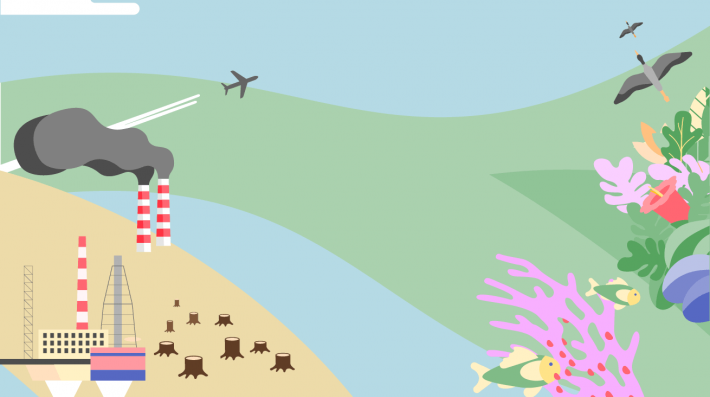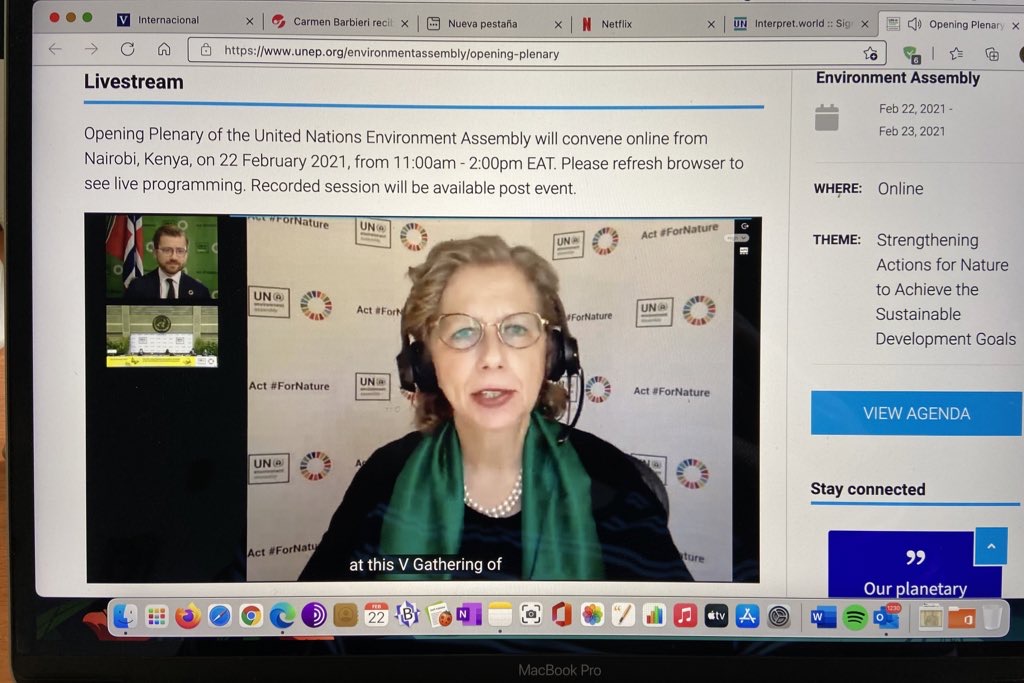
This year, due to the pandemics restriction’s, the Fifth United Nations Environment Assembly (UNEA-5) was a virtual gathering based in Nairobi. It became known as UNEA-5.1, because of a decision to complete the work of this assembly next year (with face-to-face dialogues) in what will be called UNEA-5.2 and where the need specific actions are expected to be aggressively tackled.
On the subject of the environmental crises, the UNEA was considering more than climate. The gathering addressed the multiple planetary boundaries that urge us to change drastically:
The UNEA itself seemed to present a fairly optimistic message that change was coming, while also recognizing the severity of the globe’s multiple environmental crises. In words of the UNEA-5 President, “UN systems as a hole is built upon hope and solidarity” which must motivate our actions. The leading strategy of the UNEP moving forward is to strengthen the environmental dimensions of the 2030 Agenda to achieve the SDGs.
The Assembly also noted that development gains over the past few years are all threatened now because of the COVID-19 crisis. It was also noted that our treatment of nature is connected to human health. Certainly, pollution adversely impacts health, but viruses like COVID-19 (that jump from animals to humans) are also connected to what we have done to the natural world. Time is no longer on our side.
The United Nations Environment Programme (UNEP) began in 1972, as a creation of the first world conference on the environment in Stockholm. This year—leading up to the 50th anniversary—will be a time to reflect on the successes and challenges of the UNEP as well as the year in which we should start making Peace with Nature. In this road, the youth of the world have emerged as a significant force advocating for the environmental changes/policies that we need.
This fall, we will have COP-26 in Glasgow and then next February, UNEA-5.2. A few months ago, we had the Faith for Nature gathering to promote environmental action across the world’s religions. We are clearly in a pivotal time. The environment is on the brink, but at the same time the global community seems to be marshalling its forces to combat the multiple crises. Certainly, the timing is worrisome. Will it be action that is too little, too late, or enough, just in time?
